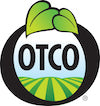If you had to guess, what do you think is the world's healthiest food? A vegetable, like kale? A fruit, maybe a berry? Perhaps something like an egg or a glass of milk? Would you be surprised by an algae? But that's precisely what some experts say about the benefits of spirulina, the blue-green cyanobacteria.
While "healthiest food" is a highly contestable term since our nutritional needs vary so greatly from person to person, we do have a pretty good baseline for what constitutes healthy.
Read MoreDrinking wheatgrass juice is known for its health-giving properties. You see trays of the stuff hanging around at most juice bars, health food stores and often perched atop healthy-eaters' countertops. But what exactly makes it such a staple among the healthy? After all, it's just grass, right?
If you think about grass—and just how many of the world's animals eat it for health and strength—wheatgrass becomes a little less strange. If anything, it connects us to our animalistic nature a bit more. And while there are many things that separate us from our fellow mammals, reaping the benefits of grasses is not one of them.
Read MoreThe tart and flavorful lemon is the most widely used citrus fruit worldwide. The health benefits of lemons are numerous and packed with nutrients. They are also one of the lowest in calories for citrus fruits, just 29 calories per 100 g.
Lemons contain no saturated fats or cholesterol, and they are rich in dietary fiber (7.36 percent of RDA). They are loaded vitamin C, citric acid, flavonoids, B-complex vitamins, calcium, copper, iron, magnesium, phosphorus, potassium, and fiber.
If fresh lemons are not a part of your everyday diet, you may want to reconsider after reading the their many health benefits.
Cinnamon, one of the oldest spices known to man, has long been used not just as a flavor enhancer, but also for its medicinal qualities. Cinnamon is an antioxidant, and its essential oils have strong antibacterial and anti-fungal properties. It has also been used centuries over for its qualities as a sedative and pain reliever.
Read MoreProduct packaging is a nonstop highway of both useful and useless information about our food. Marketers deconstruct ingredients in order to help them sell more truckloads. But one thing we don't see volunteered by any company is when their food products contain genetically modified organisms (GMOs) or ingredients. Why is that? Don't we have a right to know if our food contains GMOs?
Read More

